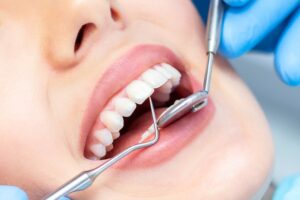
The Role of Maxillofacial Surgery in Oral Health
Maxillofacial surgery, an essential specialty within the realm of dentistry and medicine, is a unique combination of science and artistry. Often, when we think about oral health, we primarily consider teeth and gums. But it extends well beyond that, encapsulating the comprehensive health and aesthetic appeal of the face, jaws, and neck. In today’s blog post, we’ll delve into understanding significance of maxillofacial surgery. Also the impact of maxillofacial surgery on oral health, and its significance in cosmetic enhancement.
What is Maxillofacial Surgery?
Maxillofacial surgery is a specialized discipline that addresses a wide range of diseases, injuries, defects, and aesthetic features of the mouth, teeth, jaws, and face. These experts, known as oral and maxillofacial surgeons, are essentially ‘surgical artists’ who strive to enhance the function and outlook of the facial structures.
The Role in Oral Health
Maxillofacial surgeons play a vital role in oral health. They deal with a range of conditions, including impacted teeth, difficult tooth extractions, oral cancers, cysts, and tumors of the jaws, among others. They are also trained in managing facial injuries, facial pain, and TMJ (temporomandibular joint) disorders. Offering comprehensive care for conditions affecting oral health and the surrounding structures.

Perhaps the most common condition treated in maxillofacial surgery is impacted wisdom teeth. These can lead to discomfort, infection, and damage to adjacent teeth. A maxillofacial surgeon can skillfully remove these problematic teeth, preventing potential long-term issues.
The Significance in Cosmetic Enhancement
Beyond the scope of oral health, maxillofacial surgery also holds a pivotal role in cosmetic enhancement. Maxillofacial surgeons can perform a variety of surgical procedures that enhance facial aesthetics, ranging from corrective jaw surgery (orthognathic surgery) to facial rejuvenation procedures like eyelid surgery, rhinoplasty, or facelifts.
Orthognathic surgery, in particular, can significantly impact a patient’s appearance and quality of life. It’s performed to rectify a wide range of minor and major skeletal and dental abnormality, including the misalignment of jaws and teeth. The surgery can improve chewing, speaking, and breathing, while simultaneously enhancing facial appearance.
Innovations and the Future of Maxillofacial Surgery

As the field of maxillofacial surgery continues to advance, so too does the level of care provided to patients. Innovations like 3D imaging and modeling allow surgeons to plan and carry out surgeries with increased precision, while developments in anesthesia and surgical techniques have made the procedures safer and more comfortable.
Furthermore, regenerative medicine holds a promising future in maxillofacial surgery. Techniques like bone grafting, for instance, offer new possibilities for patients with bone loss due to trauma, disease, or aging.
In conclusion, maxillofacial surgery serves as a beacon of hope for those grappling with complex oral health conditions and those desiring cosmetic enhancements. It’s an integral part of modern dentistry that marries health, functionality, and aesthetics, ultimately contributing to patients’ overall wellbeing and confidence. As science and technology continue to progress, the significance of maxillofacial surgery will only grow, offering a brighter, healthier future for all.
Leave a reply
Most Commented